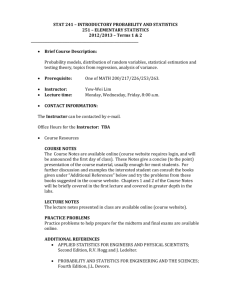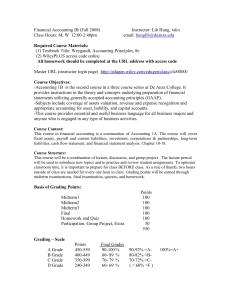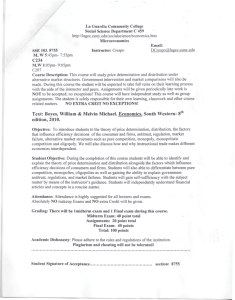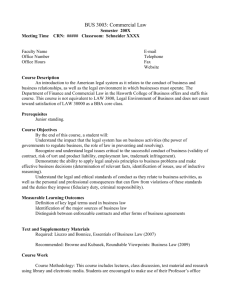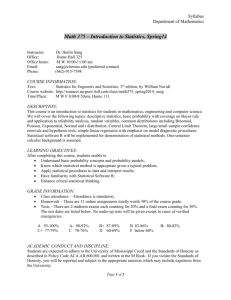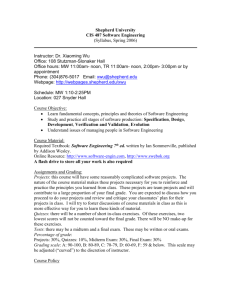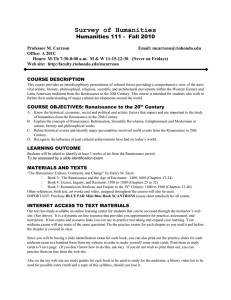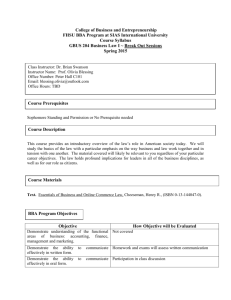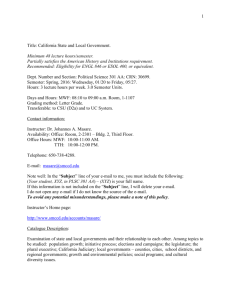THE JOHNS HOPKINS UNIVERSITY SPRING 2010 COURSE
advertisement
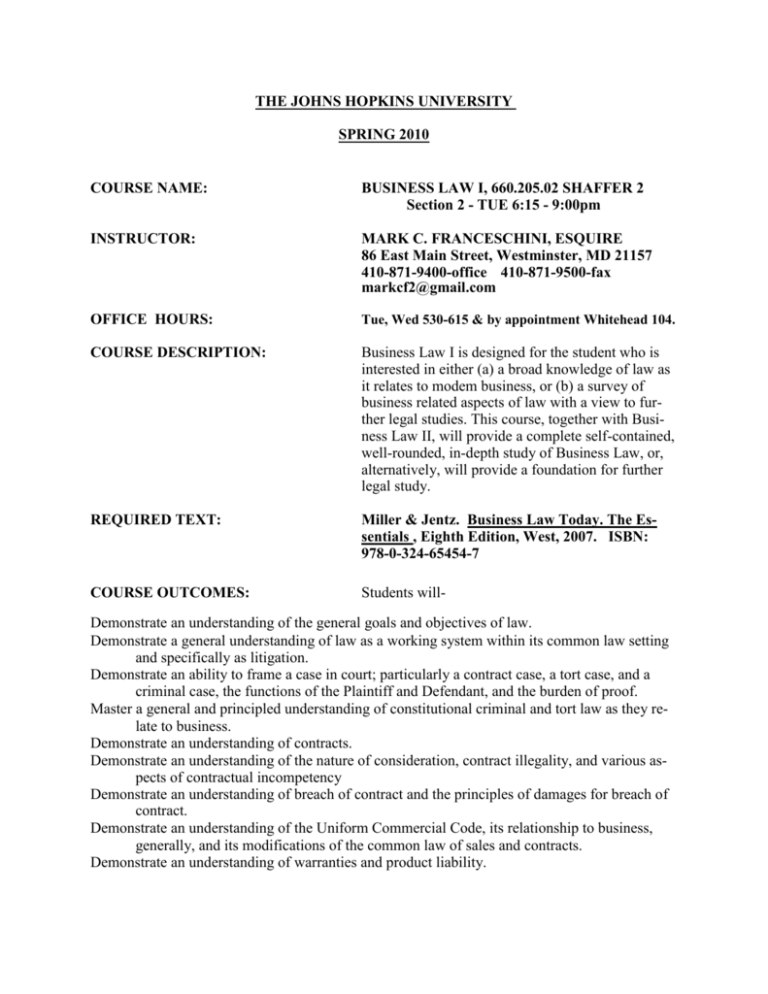
THE JOHNS HOPKINS UNIVERSITY SPRING 2010 COURSE NAME: BUSINESS LAW I, 660.205.02 SHAFFER 2 Section 2 - TUE 6:15 - 9:00pm INSTRUCTOR: MARK C. FRANCESCHINI, ESQUIRE 86 East Main Street, Westminster, MD 21157 410-871-9400-office 410-871-9500-fax markcf2@gmail.com OFFICE HOURS: Tue, Wed 530-615 & by appointment Whitehead 104. COURSE DESCRIPTION: Business Law I is designed for the student who is interested in either (a) a broad knowledge of law as it relates to modem business, or (b) a survey of business related aspects of law with a view to further legal studies. This course, together with Business Law II, will provide a complete self-contained, well-rounded, in-depth study of Business Law, or, alternatively, will provide a foundation for further legal study. REQUIRED TEXT: Miller & Jentz. Business Law Today. The Essentials , Eighth Edition, West, 2007. ISBN: 978-0-324-65454-7 COURSE OUTCOMES: Students will- Demonstrate an understanding of the general goals and objectives of law. Demonstrate a general understanding of law as a working system within its common law setting and specifically as litigation. Demonstrate an ability to frame a case in court; particularly a contract case, a tort case, and a criminal case, the functions of the Plaintiff and Defendant, and the burden of proof. Master a general and principled understanding of constitutional criminal and tort law as they relate to business. Demonstrate an understanding of contracts. Demonstrate an understanding of the nature of consideration, contract illegality, and various aspects of contractual incompetency Demonstrate an understanding of breach of contract and the principles of damages for breach of contract. Demonstrate an understanding of the Uniform Commercial Code, its relationship to business, generally, and its modifications of the common law of sales and contracts. Demonstrate an understanding of warranties and product liability. GRADING: The final grade for this course will be based upon two examinations, class participation, attendance and two courtroom observations. The following is an indication of the weight to be given each factor: Midterm Exam 25% Final Exam 25% Class Participation 20% Attendance 10% Court room Observations 10% + 10% No make-up midterm exam will be given. Should a student fail to participate in the scheduled midterm, s/he will receive zero (0) points for that test. In the event of illness or emergency properly documented by the student, the instructor may permit the preparation of a paper, in accordance with the specifications set by the instructor, to supplement the exam. The topic for the paper would be chosen by the student and the instructor. Note Well: A paper may not be done in lieu of the Final Exam!!! COURSE CONTENT: January 26 Introduction/Syllabus/Course Description Chapter 1 February 2 Chapter 3 and Library trip* 9 Chapters 3- 4 16 Chapter 4 COURTROOM OBSERVATION I DUE March April 23 Chapter 6 2 Chapter 6 and midterm review 9 MIDTERM EXAMINATION 23 Review Midterm/ Chapter 7 30 Chapters 7 and 8 6 Chapters 8 and 9 COURTROOM OBSERVATION II DUE May 13 Chapters 9 and 11 20 27 11 Chapter 11 and 12 Chapter 12 and 13 FINAL EXAMINATION 6:00 – 9:00 pm * February 2 will include instruction in the Library on Legal Research from 740-855pm FORMAT: This course utilizes lectures, case studies and problems. Students are required to read the assigned materials in advance of the class period in which the materials will be discussed. Students are advised to be familiar with the problems at the end of the chapter, as these may be discussed in class, and possibly appear on an examination. Students will be expected to participate in class discussions of the materials. Briefing cases and outlining the chapters will greatly assist in learning of materials. CHEATING: Students found cheating on an exam will fail the course and will be reported to the appropriate authority. HONOR: Students are on their HONOR to neither give nor receive unauthorized aid in the completion of case study or courtroom observation assignments. This means that each student MUST acknowledge any outside sources, with appropriate documentation. This also means that each student is expected to do his or her own work. ATTENDANCE: Students are expected to attend all class sessions except in cases of emergency (e.g., illness, death in family), the advent of religious holidays (the observance of which requires restriction of daily activity), or when participating in official University functions (e.g., field trips or athletic events). In the case of absence for special personal reasons other than those mentioned above, it is the responsibility of the student to confer with the instructor about whether the absence is to be considered as excused. When determining whether to excuse the absence, the instructor may require documentary evidence as seems fit. ALL ABSENCES OTHER THAN FOR ILLNESS CAN ONLY BE EXCUSED IF DISCUSSED WITH THE INSTRUCTOR IN ADVANCE OF THE MISSED CLASS!!!!! GRADING STANDARDS: 93-100 90-92 87-89 84-86 80-83 77-79 73-76 70-72 67-69 63-66 60-62 00-59 Superior Excellent Commendable Good Conscientious Satisfactory Average Mediocre Poor Very Poor Most Poor Unacceptable A AB+ B BC+ C CD+ D DF Note: Any assignments, other than the mid-term and final exams, must be typed, and if multiple pages, must be stapled. Any papers submitted that are not typed or stapled will lose a full letter grade. This is cumulative for papers that are neither typed nor stapled. DISCLAIMER: Please be advised that the course discussions and information, in and out of class, are not to be construed as legal advice. The professor does not have an attorney/client relationship with any student. Only your attorney can give you legal advice.

